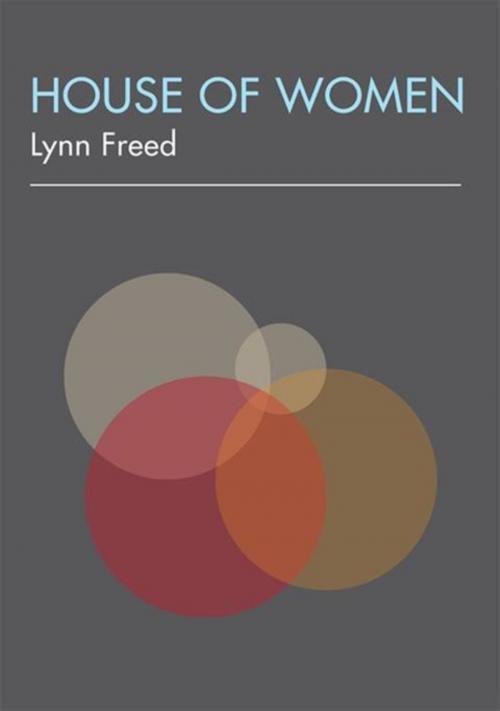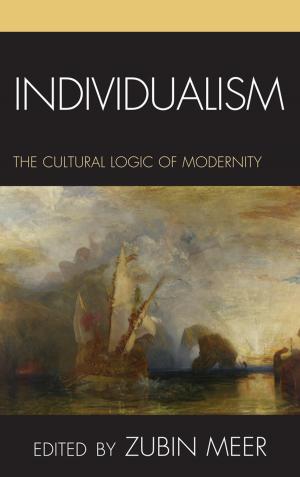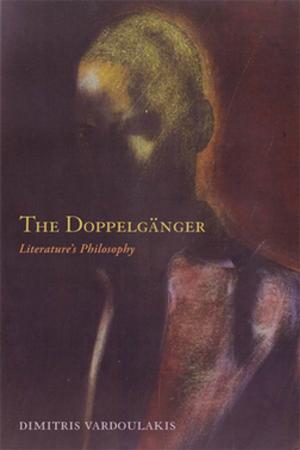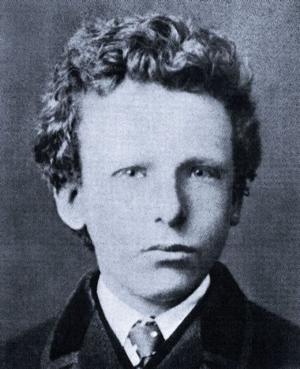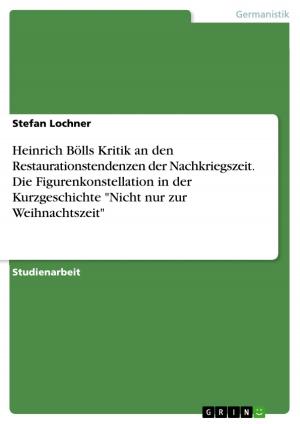| Author: | Lynn Freed | ISBN: | 9780786756483 |
| Publisher: | William Morris Endeavor Entertainment LLC | Publication: | April 26, 2016 |
| Imprint: | 212 Books | Language: | English |
| Author: | Lynn Freed |
| ISBN: | 9780786756483 |
| Publisher: | William Morris Endeavor Entertainment LLC |
| Publication: | April 26, 2016 |
| Imprint: | 212 Books |
| Language: | English |
Notable Book of the Year, New York Times Book Review
House of Women is the story of three unusual women seventeen-year-old Thea, her mother Nalia, an opera singer and Holocaust survivor, and Maude, their dour and religious housekeeper. It is the story of how the world changes for each of them when a man comes to take Thea away.
The rule is this: says Thea, I am to pretend that my other life does not exist. And yet pretending, it seems to be true.” Stark, philosophical and surprising, House of Women is a tale of passion, love, secrets, and bonds that cannot be broken, even in death
"Secrets twine around secrets in this haunting, intimate novel about the power of desire and the stifling force of isolation. Born to a wealthy womanizer and a vain opera singer, Theadora grows up on an estate with her mother, Nalia, at the southern tip of Africa. She is both spoiled and sheltered, never allowed to leave home unescorted. When Nalia goes inland for weekend sessions with her therapist, Katzenbogen, the maid, Maude, is left in charge. No man, not even Thea's father, is allowed up to the house. Later, it is clear why the gate is always padlocked; unbeknownst to her, 17-year-old Thea has been promised to her father's middle-aged cousin, a Syrian. He takes advantage of Thea's eagerness to see the world beyond her front yard, not to mention her yearning for male attention, and lures her from her haven. They quickly marry aboard a ship "And so it is done. I am to be married to a man whose name I do not know" and speed off to his nameless island home. Only there does Thea realize that this adventure might have serious consequences and question why the Syrian wanted her. The truth hardens her resolve to escape and see her mother again. Like a Jean Rhys antiheroine, Theadora strikes out fiercely against the world, but is helpless in the face of male desire. And like Rhys, Freed (The Mirror) imagines a world in which major events are only ambiguously described, but domestic details are sensuously immediate. This otherworldly tale philosophizes smartly on what it is to crave love and to sacrifice clarity for passion."
-Publishers Weekly
"The author of four previous novels, South African-born Freed (The Mirror) here presents a surreal tale. Her heroine innocent, convent-educated Thea describes her abduction and marriage to her natural father's wealthy cousin. Thea does not know her husband's name or the name of the island where he makes her a prisoner in his home. As she recounts her struggles to come to terms with her new life, she writes never-answered letters to her mother, a Holocaust survivor, and muses on her previous life. Until she was 17, she lived an isolated life somewhere near "the bottom of Africa" with her mother and Maude, a native live-in servant. After the birth of twin girls, she convinces her husband to allow her to return to visit her mother, only to learn that her mother is dying. Nearly 20, Thea reads her mother's notebook and finally learns her secrets. Freed's matter-of-fact writing style draws the reader into Thea's strange and isolated world. While the novel may find an audience in large public libraries, the book's focus on psychological and gender issues recommends it to academic libraries."
-Cheryl L. Conway, Univ. of Arkansas Lib., Fayetteville, Library Journal
"At the heart of this affecting story, written in the style of a Greek tragedy (with elements of mystery, deceit, torment, love, and longing), is the deep, complex relationship between Nalia and her daughter, Thea. Nalia is a Holocaust survivor who escaped with her family's money to another continent, where she had a relationship with a handsome, womanizing man that turned from love to hate. Thea is the result of this relationship. Nalia is determined to protect Thea from the world, and her father wants to keep her as a virtual prisoner in the house and closed off
Notable Book of the Year, New York Times Book Review
House of Women is the story of three unusual women seventeen-year-old Thea, her mother Nalia, an opera singer and Holocaust survivor, and Maude, their dour and religious housekeeper. It is the story of how the world changes for each of them when a man comes to take Thea away.
The rule is this: says Thea, I am to pretend that my other life does not exist. And yet pretending, it seems to be true.” Stark, philosophical and surprising, House of Women is a tale of passion, love, secrets, and bonds that cannot be broken, even in death
"Secrets twine around secrets in this haunting, intimate novel about the power of desire and the stifling force of isolation. Born to a wealthy womanizer and a vain opera singer, Theadora grows up on an estate with her mother, Nalia, at the southern tip of Africa. She is both spoiled and sheltered, never allowed to leave home unescorted. When Nalia goes inland for weekend sessions with her therapist, Katzenbogen, the maid, Maude, is left in charge. No man, not even Thea's father, is allowed up to the house. Later, it is clear why the gate is always padlocked; unbeknownst to her, 17-year-old Thea has been promised to her father's middle-aged cousin, a Syrian. He takes advantage of Thea's eagerness to see the world beyond her front yard, not to mention her yearning for male attention, and lures her from her haven. They quickly marry aboard a ship "And so it is done. I am to be married to a man whose name I do not know" and speed off to his nameless island home. Only there does Thea realize that this adventure might have serious consequences and question why the Syrian wanted her. The truth hardens her resolve to escape and see her mother again. Like a Jean Rhys antiheroine, Theadora strikes out fiercely against the world, but is helpless in the face of male desire. And like Rhys, Freed (The Mirror) imagines a world in which major events are only ambiguously described, but domestic details are sensuously immediate. This otherworldly tale philosophizes smartly on what it is to crave love and to sacrifice clarity for passion."
-Publishers Weekly
"The author of four previous novels, South African-born Freed (The Mirror) here presents a surreal tale. Her heroine innocent, convent-educated Thea describes her abduction and marriage to her natural father's wealthy cousin. Thea does not know her husband's name or the name of the island where he makes her a prisoner in his home. As she recounts her struggles to come to terms with her new life, she writes never-answered letters to her mother, a Holocaust survivor, and muses on her previous life. Until she was 17, she lived an isolated life somewhere near "the bottom of Africa" with her mother and Maude, a native live-in servant. After the birth of twin girls, she convinces her husband to allow her to return to visit her mother, only to learn that her mother is dying. Nearly 20, Thea reads her mother's notebook and finally learns her secrets. Freed's matter-of-fact writing style draws the reader into Thea's strange and isolated world. While the novel may find an audience in large public libraries, the book's focus on psychological and gender issues recommends it to academic libraries."
-Cheryl L. Conway, Univ. of Arkansas Lib., Fayetteville, Library Journal
"At the heart of this affecting story, written in the style of a Greek tragedy (with elements of mystery, deceit, torment, love, and longing), is the deep, complex relationship between Nalia and her daughter, Thea. Nalia is a Holocaust survivor who escaped with her family's money to another continent, where she had a relationship with a handsome, womanizing man that turned from love to hate. Thea is the result of this relationship. Nalia is determined to protect Thea from the world, and her father wants to keep her as a virtual prisoner in the house and closed off
